Atul Singh argues that Charlie Hebdo occurs when religion is taken literally, and once people can question, find jobs and have hope, they shalt not kill.
In 1600, the Roman Catholic Church burnt Giordano Bruno, a Renaissance philosopher who proposed that stars were just distant suns and some of their planets could foster life as well. The Inquisitors declared that Bruno held opinions contrary to the Catholic faith and, therefore, deserved death. As late as 2000, Cardinal Angelo Soldano, the first person since 1828 to serve simultaneously as dean of the College of Cardinals and secretary of state, had the cheek to claim that Bruno’s inquisitors “had the desire to serve freedom and promote the common good and did everything possible to save his life.”
In 2015, some crazed Islamist terrorists have avenged insults to Prophet Muhammad by killing some of France’s finest cartoonists in Paris. La grande nation has a long history of radical philosophy, anti-clericalism and biting satire. Charlie Hebdo represented the best of the French tradition and took pot shots at everyone. In 2012, it published a cartoon of Prophet Muhammad naked and crouching. The magazine’s office was firebombed the next day. Undaunted, Charlie Hebdo continued to mock Muhammad. In an interview with Le Monde, Managing Editor Stéphane Charbonnier, or “Charb,” declared: “What I’m about to say is maybe a little pompous, but I’d rather die standing up than live on my knees.” Tragically, Charb got his wish.
Immediately after the Paris murders, my conversations turned explosive. Some claimed that Islam was a religion of violence going back as far as Muhammad. An Iranian scholar pointed out that Islam destroyed native faiths and Zoroastrians had to flee to India for refuge when Islam came to his country. Indians referred to the destruction of ancient temples of north India. A historian nearly wept talking about the destruction of Nalanda in 1198. Ikhtiyar ad-Din Muhammad bin Bakhtiyar Khilji, a Muslim general, sacked Nalanda, the great Indian university where students came to study from around the world. He slaughtered its scholars. The army used its manuscripts were used to light campfires for six months. Many see the terrorists who attacked Charlie Hebdo as part of a longstanding tradition of violence and intolerance in Islam.
Others jumped to draw the distinction between religion and fanaticism. They claimed that fanatics who followed Joseph Stalin, Adolf Hitler and Mao Zedong killed more people than crusaders and jihadists. Human beings are programmed to kill. If it is not religion, then they will find some other ideology to fight for, die for and kill for. Most Muslims, like most Christians, Hindus, Buddhists or members of any other religion, want to live peacefully, provide for their children and cherish their culture. It is unemployment, alienation and poverty that create conditions for terrorism. The most fashionable comment in today’s liberal circles is that religion has nothing to do with violence.
Yet others declared that this was blowback for the sins of the West. If the US is going to kill innocent women and children through drone strikes in places like Afghanistan, then Muslim fundamentalists are going to take revenge. For years, the US has backed Saudi Arabia where beheadings and amputations are conducted as “God’s will,” but Uncle Sam’s oil addiction makes it turn a blind eye to the extremism of its ally. Saudi money has funded madrasas (religious schools) all around the Muslim world. This export of puritanical Wahhabism is tearing apart local social fabrics with deep traditions of eclecticism. As per this line of thought, Islamist terrorists are merely Frankensteins created in capitals like Washington DC, London and Paris.
So, what is really going on? How do we make sense of it all?
Religion: A Big Problem
In my recent article on Jesus, I mentioned that religion at its best provides a repository of tradition, a locus for community and a crucible for spirituality. At its worst, it is a map of the world that is outdated. Do I believe that Eve came out of Adam’s rib? Certainly not! For me this is a sexist creation tale that replaced the pagan idea of the mother goddess. Even the act of creation was now a male preserve. I agree with Richard Dawkins that the doctrine of original sin is obnoxious. The idea that God would punish humanity ruthlessly for Adam’s disobedience is authoritarian mumbo jumbo.
Similarly, do I think Muhammad is a prophet? Hell no! He was a charismatic fellow who had some interesting things to say. He was able to create a moral, spiritual and political force that spread across much of the world. Conversion to Islam was achieved in no small measure due to the sword. The record of Islam in India is particularly brutal. The natives to the east of the Indus were termed Hindus and were seen as idol worshippers who didn’t believe in monotheism. They worshipped thousands of gods, including those with monkey and elephant heads, which was anathema to the early Muslim invaders. Temples were sacked, universities destroyed and those who didn’t convert to Islam had to pay jizya, a per capita tax on non-Muslims from the 12th century onward. Under certain rulers, evasion of jizya meant enslavement. The tax continued till the early 18th century.
Moreover, do I think that Brahmins came out of Brahma’s mouth? That is gobbledygook written up by Brahmin priests to perpetuate the hegemony of their caste. In India, the caste system was baked into religious doctrine. The Hindu notion of purity and impurity of birth is vile. It led to a perverse class system that denied opportunity to millions. The superstitions peddled by Brahmin priests held back inquiry, promoted conformity and enabled the colonization of a deeply divided society.
The problem with religion arises because people believe in the absolute truth of their views on little or no evidence. Argument is impossible because their beliefs come from God and are beyond reason. This makes them prey to superstition, fanaticism and worse.
But Men and Women Need God…
Atheists like Christopher Hitchens and Dawkins believe that eventually religion will become redundant and fall to the march of reason. The reality is that new faiths such as Sikhism and Mormonism keep popping up. In India, holy men appear all the time and people continue to believe in them, even when they are found guilty of theft, rape, pedophilia, extortion and murder. Sadly, human beings are largely conformists. William Golding in Lord of the Flies paints a tale of how schoolboys moored on an island turn to violence and murder. Tribes throughout history have raided each other’s territories, plundered valuables and kidnapped women. Religion is a code of beliefs that appeals to a transcendent authority and makes conformity easier. It also allows human beings to justify their interests more easily. Crusades becomes noble, “Muscular Christianity” wonderful and conversions of savages the work of God.
Men and women need God or Gods. Human beings are not entirely rational creatures. They turn to narratives, myths and symbols to create meaning in their lives. When I speak about Inquisition, Christians invariably point to Hitler as a secular leader who killed many more Jews than the Catholic Church. My contention is that Hitler was trying to create his own religion that was based on race, but he failed because he was unable to temper his doctrinaire beliefs to account for a world that didn’t fit his crazy theory. People want to believe in God. They want to believe that some father figure is looking out for them. They want to believe that our transient lives have clear and defined meaning. They want to believe in something bigger than themselves. Che Guevara believed deeply in a cause and was willing to die for it. That is why he is a saint-like figure for many.
Successful religions are ones that have been able to mix coercion and cooption. They also meet human needs. Islam succeeded in spreading so rapidly perhaps because it was the Marxism of its time. It offered greater equality than existing religions and a supra-tribal identity, uniting warring tribes in Arabia. Of course, the early Muslim conquerors committed excesses, but they provided community and welfare as well. The mosque provided and continues to provide a place for reflection. Zakat is a redistributive tax on those with wealth. Islam succeeded because its early adherents were supremely motivated, skilled with the sword and able to account for fundamental human needs.
It can be argued that early Muslim conquerors were more humane than the Christian conquistadors of South America. Muslim regimes such as the Abbasid and Ottoman Caliphates proved to be more humane than Philip II’s Spain or Calvin’s Geneva. Akbar’s Mughal Empire was certainly more tolerant than any contemporary European kingdom, including Elizabeth’s England. Yet God provided the glue for these regimes and even now is a large cloud in people’s lives, if not the entire firmament.
So, What to do With “Allahu Akbar”?
Most Muslims are not terrorists. Yet it is also true that most terrorists tend to be Muslim. A monotheistic faith that rests its authority on a revealed book in the Arabic language lends itself to fanaticism. Like Christianity, Islam has a history of violence. Currently, the Muslim world is seeing the equivalent of the Thirty Years’ War across Lebanon, Syria and Iraq. The Islamic State is quite literally putting the fear of God into the people of the Middle East as it rips apart the Sykes-Picot paradigm. The murderers in Paris shouted “Allahu Akbar” (God is great) as they killed harmless cartoonists. There is a feeling of victimization in the Muslim world and violence is often the reaction. Instead, an intellectual and spiritual renaissance is the answer. There are no simple answers, but a culture of questioning will go a long way.
At the same time, the US, Britain and France have acted arrogantly and ruthlessly in the Muslim world. If the Americans had not conducted the 1953 coup in Iran and destroyed the secular opposition to the Shah, there would have been no Ayatollah Khomeini. The British policy of divide and rule in India led to the creation of Pakistan. France’s record in Algeria is horrendous. In the 1980s, the US ganged up with the Saudis to back the mujahedeen, which later morphed into the Taliban and al-Qaeda under the tutelage of Pakistan. The illegal Iraq War and the drone strikes in Afghanistan create resentment. Disaffected minorities living in ghettos of European cities are going to terrorism schools in Syria, Iraq and Afghanistan. They graduate with honors and return to wreak havoc at home. The dead murderers in Paris are a classic example.
Many years ago, I ran away from home. I went to Sarnath, where Buddha began his preaching, and then walked around much of India. I still vividly remember how most of the people who hosted and fed me were deeply pious. Some of my closest friends are deeply religious. Some consult horoscopes, others wear rings to control planets, still others offer salah (prayer) five times a day and some even believe that Mary was a virgin mother. Yet they are not people who would pick up the gun to kill those who do not share their beliefs. They have jobs and hope. They are incredibly warm people and care deeply for their children. They even care about friends like me who supposedly live in sin.
People take to a gun in the name of religion only when they are angry, desperate and indoctrinated. They could be young men from a minority as in the Boston bombings. They could be poor young men as in the Peshawar school attack. They could be the suicide bombers that blew themselves up in Jerusalem.
In many parts of the Muslim world, there are few opportunities. Employment is low, inflation often high and life in sordid urban environments is disorienting. Mosques often provide refuge, identity and purpose to listless young men chafing against autocratic regimes. In the words of a colleague, these disenfranchised young men are vulnerable to charismatic “clerics with a cause” who often push them down the primrose path to the everlasting bonfire.
The more people learn to question, to think and to live full lives with hope, the less dogmatic they are likely to be. They may continue to believe in some mumbo jumbo, but they will certainly not be killing for it. In the days when I was an officer, I once led my men on a dangerous mission. All of them were Christian, and they knelt down to pray before we crossed a river. They believed the cost of not praying was death. I walked on and waited for them on the other side. When I returned alive, I told them that their belief had just been proved wrong. Their riposte was immediate: “Sir, you are a good man. All of us prayed for you.” Yes, believers can pray for heathens and not just kill them.
A close friend of mine did his PhD under Isaiah Berlin and is Catholic. Some years ago, I asked him whether he believed in God, and he responded by saying that he didn’t have time for such nonsense. He is Catholic because of the music, the tradition, the architecture and the sense of service. According to him, God is a useful idea to create a moral and reflective society. If there was no God, society would be far too materialistic and lack basic human values. He pointed out that people tell their children stories whether they are from Aesop’s Fables or the Panchtantra. Religion is just morality tales for grown-ups. The ideas of loving your neighbor, being truthful, caring for the poor, forgiving foes and turning the other cheek are best transmitted through stories. The Bible in Germany — the land of witch burnings and the Thirty Years’ War — is now regarded more as metaphor, less as literal truth. That is the way forward.
*[Updated: November 23, 2021.]
The views expressed in this article are the author’s own and do not necessarily reflect Fair Observer’s editorial policy.
Photo Credit: Erica Simone / Zurijeta / Ksenia Ragozina / Mark Skalny / Francesco de Marco / Shutterstock.com
Support Fair Observer
We rely on your support for our independence, diversity and quality.
For more than 10 years, Fair Observer has been free, fair and independent. No billionaire owns us, no advertisers control us. We are a reader-supported nonprofit. Unlike many other publications, we keep our content free for readers regardless of where they live or whether they can afford to pay. We have no paywalls and no ads.
In the post-truth era of fake news, echo chambers and filter bubbles, we publish a plurality of perspectives from around the world. Anyone can publish with us, but everyone goes through a rigorous editorial process. So, you get fact-checked, well-reasoned content instead of noise.
We publish 2,500+ voices from 90+ countries. We also conduct education and training programs
on subjects ranging from digital media and journalism to writing and critical thinking. This
doesn’t come cheap. Servers, editors, trainers and web developers cost
money.
Please consider supporting us on a regular basis as a recurring donor or a
sustaining member.
Will you support FO’s journalism?
We rely on your support for our independence, diversity and quality.


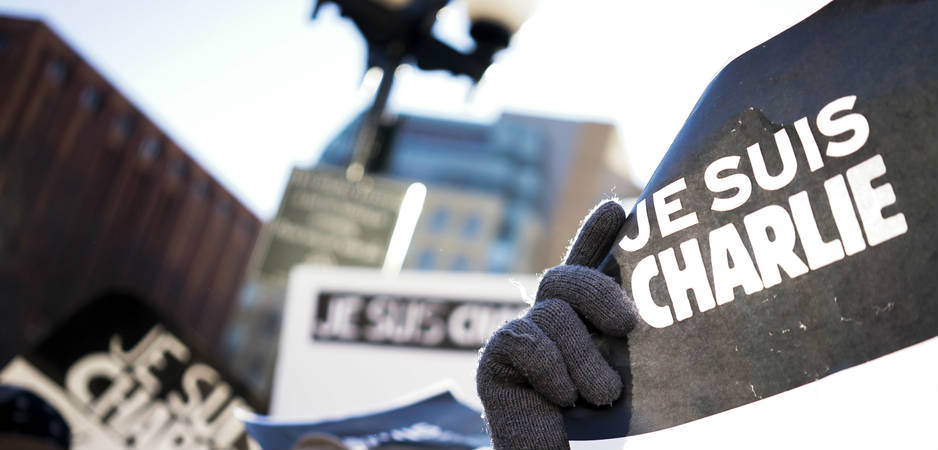



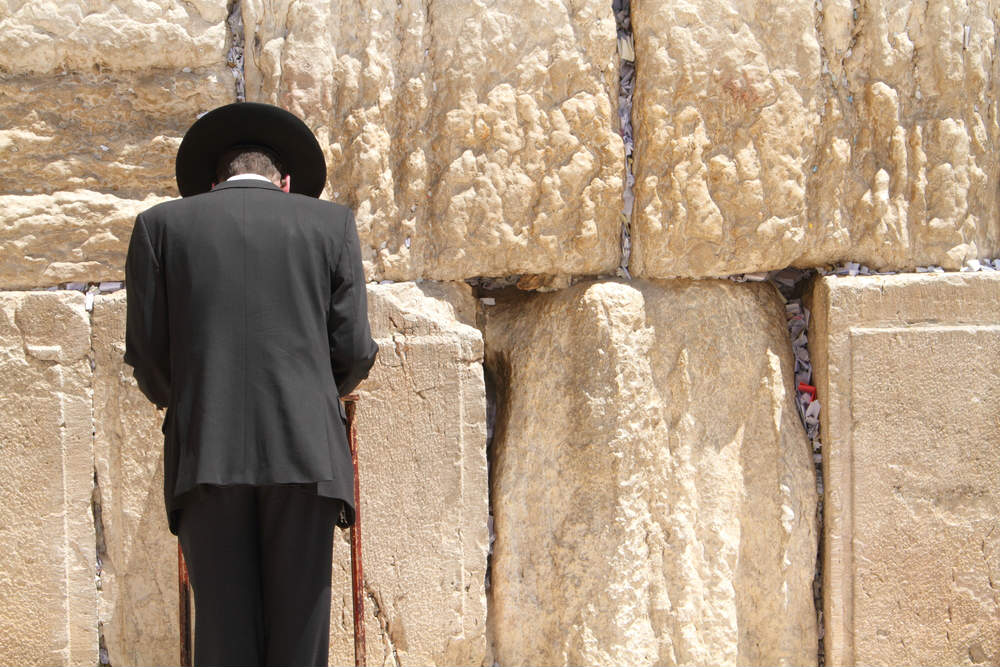



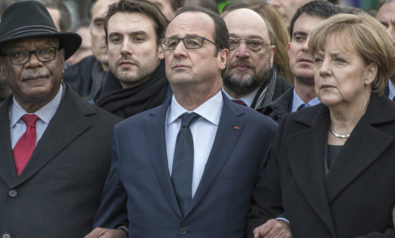





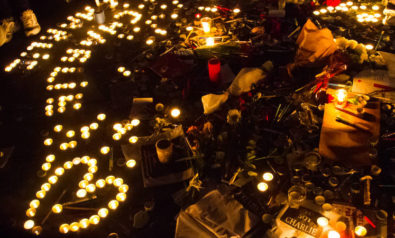
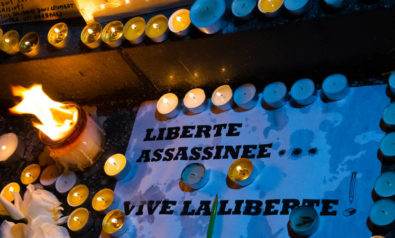


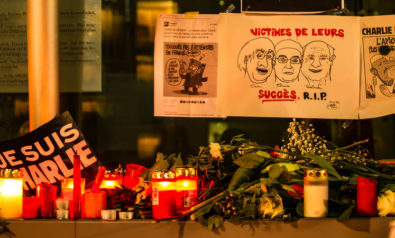
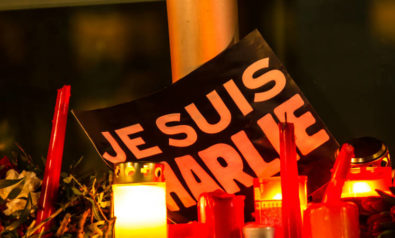

Comment
The guy with MBA in finance who is very likely neither Christian, Muslim or Jewish is teaching a lesson in religion! Despite overabundance of historic facts, analysis of most of them does not lend to the pre-hatched conclusions reached. Im surprized how someone with graduate degree (did I say in 21st century?) can divide the world into Muslim world and Christian world and analyze the merits… Im sorry but it is worth no more than a high school paper. Better do smth else!
P.S. This post has been removed earlier, Im reposting. Hopefully, it was done by mistake and editor is not trying to stifle freedom of speech that he is vouching for.
At last, an article which mentions the unmentionable truth – that the activation of extremist, violent terrorism in the name of Islam is direct payback on the West for our massacre of innocent people on a vast scale in our Middle Eastern ‘resource wars’. Not forgetting our failure to stop (or even properly to condemn) the hideous Israeli actions in Gaza; ruthless terrorism on a far larger scale than what has just happened in Paris. Philosophical musings aside, we all know that religion can easily become a powerful rallying cry to violence, especially in the Middle East. Yet we allowed our elected leaders to get away with a cooked-up war against the Muslim world and have never brought them to book for it, even after their extraordinary mendacity had been revealed. Literally millions of innocents died in Iraq as a direct result of western aggression. This ‘inconvenient truth’ has barely been remarked on by western media or politicians – but is all too well known to the radicalised young Muslim men leaving the UK and other countries to fight for Isis, or getting involved in terrorist cells in Europe like the one that hit Charlie Hebdo. I doubt that anyone reading this will be aware, for instance, that at the time of the Iraqi conflict videos were shown in Mosques up and down the UK of young children being literally blown to pieces in front of their agonised and terrified parents by US or British bombs (does it matter which?). We have never been allowed to see this kind of thing in our ‘oh-so-free’ media because of war-censorship rules. I know for a fact that eye-witness video like this of western ‘collateral damage’ atrocities was submitted to the BBC and that they declined to air it on the grounds that its source could not be ‘validated’. How convenient for the government, whose own spokesmen could of courts be instantly ‘validated’.
This conflict has now been framed in our media as ‘Islamic darkness and suppression versus Western enlightenment and freedom’, which is a great narrative if you are prepared to overlook the violence that we ourselves have done to Muslim peoples in their own lands. Until we ‘walk the talk’ of our much celebrated free, democratic and open society by bringing war criminals like Blair, Bush and Cheney to trial we are living a great lie and kind of deserve what we get. Islamic terrorism is a monster created by western foreign policy aggression, not spawned spontaneously out of a dark religious tradition. This is a political issue first, a religious one second. Jeremy Keen
The guy with MBA in finance who is very likely neither Christian, Muslim or Jewish is teaching a lesson in religion! Despite overabundance of historic facts, analysis of most of them does not lend to the pre-hatched conclusions reached. Im surprized how someone with graduate degree (did I say in 21st century?) can divide the world into Muslim world and Christian world and analyze the merits… Im sorry but it is worth no more than a high school paper. Better do smth else!
Interesting article. However, feel the approach doesn’t do justice to the title. Religion is just a tale of morality for grown ups and the content of the article seem not to match very well.
One of the things that does stand out is the article doesn’t touch on how the use of moral high ground is used by most across the ages to justify their behaviour. This is regardless of the whether they actually have moral high ground or not.
For instance, one of the reasons why Buddhism was exported to Indo China was because there was lot of local resistance to it from.other local faiths. If we look at how things are today, there are more Buddhists who live out side Northern India – its birth place. This isn’t touched on.
Be nice to see more balance and depth.
Look forward to other thoughts.